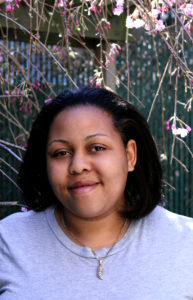HEALTH & WELLNESS SERVICES AT THE GEORGE ROSENFELD CENTER FOR RECOVERY
For more than 50 years, Odyssey House has embraced total wellness as a key to lifelong recovery from substance use disorders. When the George Rosenfeld Center for Recovery (GRCR) officially opens this spring, women, and seniors will have access to the innovative health and wellness services stemming from this approach, including primary medical and dental care and physical fitness programs.
Clients in treatment at the GRCR receive a broad range of medical and dental care at our on-site clinic run in partnership with a nationally recognized Federally Qualified Health Center. Board-certified physicians and nurse practitioners conduct comprehensive medical exams, treat any unmet medical needs, and work with the behavioral health treatment team on the management of medication-assisted treatments (such as buprenorphine, Vivitrol, and methadone maintenance).
 Promoting physical health is a key component of treatment at Odyssey House. The fitness services include a gym with exercise equipment and weights and a regular schedule of organized activities from running programs to yoga and movement exercises. A certified trainer is available to work with residents to plan and track their progress and develop fitness goals, including weight loss and improved stamina, that help restore energy and reduce the risk of diabetes and other diseases.
Promoting physical health is a key component of treatment at Odyssey House. The fitness services include a gym with exercise equipment and weights and a regular schedule of organized activities from running programs to yoga and movement exercises. A certified trainer is available to work with residents to plan and track their progress and develop fitness goals, including weight loss and improved stamina, that help restore energy and reduce the risk of diabetes and other diseases.
Kitchen and dining facilities support clients’ health and wellness goals with nutritionally balanced meals prepared daily on-site. Alcohol and drugs can prevent the body from absorbing essential nutrients and expelling toxins. Access to regular healthy meals help repair those damaged functions, restore energy, and help clients in recovery feel stronger and think more positively.


 Ashley, 28, started using drugs and alcohol after graduating high school in Long Island. It started with the occasional use of marijuana and alcohol, mostly as a means of fitting in with her friends and dealing with low self-esteem. It also made it easier to ignore that she was directionless, in and out of college, unable to decide what to study or do with her life.
Ashley, 28, started using drugs and alcohol after graduating high school in Long Island. It started with the occasional use of marijuana and alcohol, mostly as a means of fitting in with her friends and dealing with low self-esteem. It also made it easier to ignore that she was directionless, in and out of college, unable to decide what to study or do with her life.